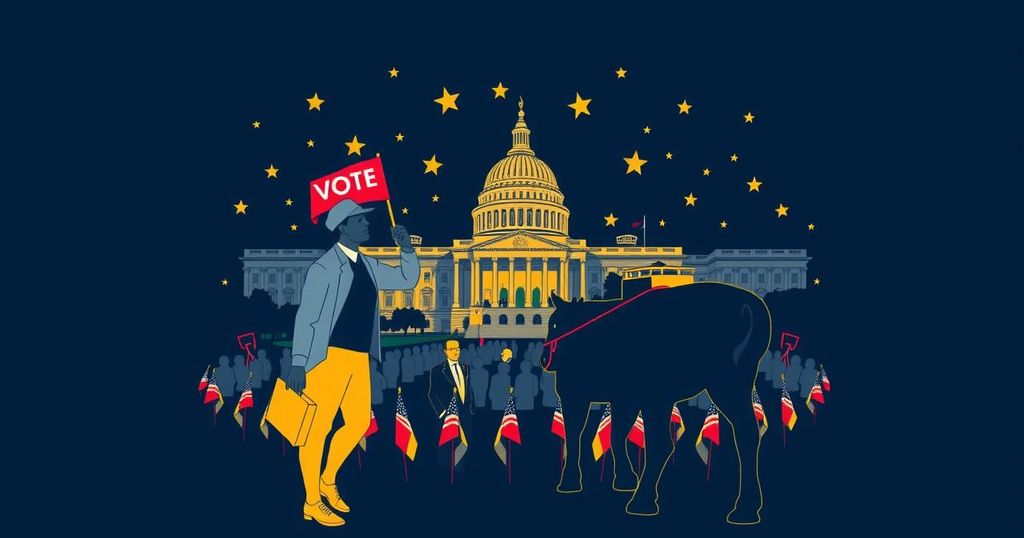As Washington State prepares for its elections, voters exhibit a predominant focus on the presidential race between Kamala Harris and Donald Trump, overshadowing local contests such as the governor’s race. Interviews indicate widespread anxiety over potential outcomes and the implications of leadership on various societal issues. Candidates are adjusting their messages to resonate with concerns about national policies and local impacts. The voter turnout lags behind previous elections, reflecting growing worries about election integrity and civic engagement amidst a volatile political landscape.
As Washington State approaches Election Day, voters are predominantly focused on one contest: the presidential race between Vice President Kamala Harris and former President Donald Trump. This election marks the first gubernatorial election in twelve years, alongside various other local contests, including new congressional members and statewide initiatives. However, interviews with voters yield insight into a disturbing trend: the local issues seem to be overshadowed by the national narrative surrounding the presidential candidates. In a region heavily influenced by Democratic sentiments, voters express varying emotions ranging from anxiety to dread over a potential Trump victory. While local races are important, they are being eclipsed by the rhetoric and implications surrounding the presidential election. According to David Phillips, a public health researcher, “It really crowds out everybody’s attention span for all of the smaller stuff, which is probably more directly impactful on my life. But I’ve got to pay attention to the bigger one that has the biggest impact on the world.” Candidates are adjusting their campaigns in response to this focus. For instance, Bob Ferguson, the Democratic candidate for governor, strategically employs imagery linking his opponent to Trump. Many voters express deep concern over crime, emotional rhetoric, and economic challenges, pointing to the instability they perceive in the current administration. The voting sentiment is complex; while Harris receives substantial support, sentiments towards Trump remain conflicted, with some voters viewing him as a stable figure despite his controversial actions and statements. Voter participation statistics indicate a lower turnout compared to the same time in the 2020 elections, with concerns about the integrity of the voting process echoing throughout the community, particularly influenced by Trump’s claims of corruption in mail-in voting. In conclusion, the overarching anxiety regarding national leadership eclipses local issues, compelling candidates to recalibrate their messages in response to voter concerns. As Washington voters prepare to cast their ballots, it becomes clear that while many local elections will take place, the presidential race remains the focal point, impacting how individuals consider civic participation and the future of democracy in the nation.
This article addresses the pressing political climate in Washington State as it heads toward a significant election. With Washington voters preparing to select a new governor, among other local offices, the overwhelming focus appears to be on the presidential race between Kamala Harris and Donald Trump. The article delves into the sentiments of various voters, highlighting their thoughts on local elections while emphasizing the national issues that dominate their concerns and decision-making. It reflects on the psychological and civic engagement aspects of voting in the current electoral landscape.
In summary, the upcoming elections in Washington reflect a complex interaction between local electoral activities and national concerns, particularly centering on the presidential race. Voter anxiety, overshadowed local races, and the influence of heightened communication from national candidates delineate the current political atmosphere. As voters navigate their choices, it remains evident that the overarching issues presented by the presidential contest significantly shape their perception and engagement in the electoral process.
Original Source: www.seattletimes.com






